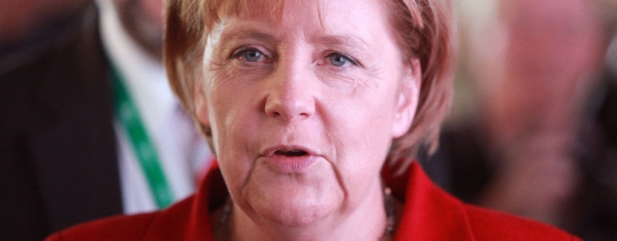Archived article
Please note that tax, investment, pension and ISA rules can change and the information and any views contained in this article may now be inaccurate.
What next for investors after German elections?

German chancellor Angela Merkel is still in charge following federal elections (24 Sep) but now faces a difficult task in building a government. So what does this mean for investors with exposure to Europe?
The surge in support for the anti-immigrant AfD party and an underwhelming performance for mainstream parties, including Merkel’s own CDU party and its partner CSU, means cobbling a coalition together may take some time. Any resulting weakness in German equities could be short-lived.
Invesco Perpetual’s head of European equities Jeff Taylor reckons the potential presence of the libertarian FDP party in a coalition could result in material tax cuts ‘that could well be positive for European growth at the margin’, he adds.
In the immediate aftermath of the election the euro suffered as the result was interpreted as making necessary reform in the eurozone more difficult. This could be a positive for German exporters, making their goods and services relatively cheaper for overseas buyers.
Investors looking for exposure to German stocks could consider exchange-traded fund Db X-trackers DAX UCITS ETF (XDDX) which tracks a basket of the 30 largest and most actively traded firms on the Frankfurt Stock Exchange.
What is coming next?
There are two other political events on the horizon which could have implications for the markets. In Spain, despite the best efforts of the government in Madrid, the Catalan region plans to hold an illegal independence referendum on 1 October.
If the poll goes ahead any result would not be legally binding but a vote to go it alone could put pressure to offer the region a legal referendum in the future.
The resulting uncertainty and the risk of a break up of Spain could put further pressure on the single currency.
In Japan, prime minister Shinzo Abe has called a snap election with Japanese media reporting it will take place on 22 October. After sinking in the opinion polls, Abe has seen his popularity improve on rising tensions with North Korea.
 Jesper Koll, who runs the Japanese arm of ETF provider WisdomTree, says there is now an increased chance of a tax hike being announced next year. He says that risks a recession in the world’s third largest economy because previous tax hikes prompted forced recessions and equity bear markets.
Jesper Koll, who runs the Japanese arm of ETF provider WisdomTree, says there is now an increased chance of a tax hike being announced next year. He says that risks a recession in the world’s third largest economy because previous tax hikes prompted forced recessions and equity bear markets.
Important information:
These articles are provided by Shares magazine which is published by AJ Bell Media, a part of AJ Bell. Shares is not written by AJ Bell.
Shares is provided for your general information and use and is not a personal recommendation to invest. It is not intended to be relied upon by you in making or not making any investment decisions. The investments referred to in these articles will not be suitable for all investors. If in doubt please seek appropriate independent financial advice.
Investors acting on the information in these articles do so at their own risk and AJ Bell Media and its staff do not accept liability for losses suffered by investors as a result of their investment decisions.
Issue contents
Big News
- Big news in the banking sector
- Gambling stocks in focus ahead of Government review
- Cobham appoints former Airbus UK chief
- MJ Gleeson is one of our top picks among housebuilders
- What next for investors after German elections?
- Central Asia Metals’ zinc move makes the stock higher risk
- UK hotel growth to decline in 2018
 magazine
magazine









